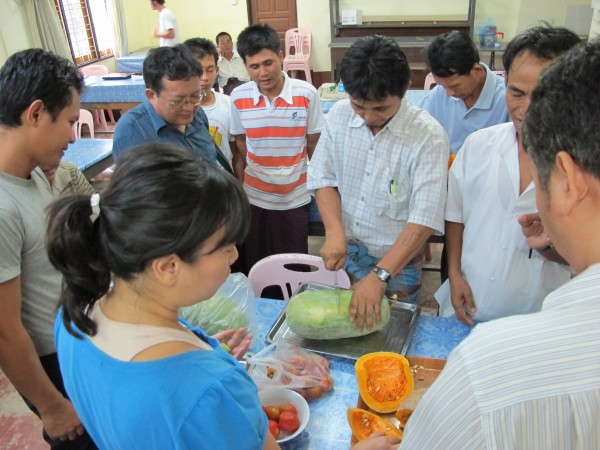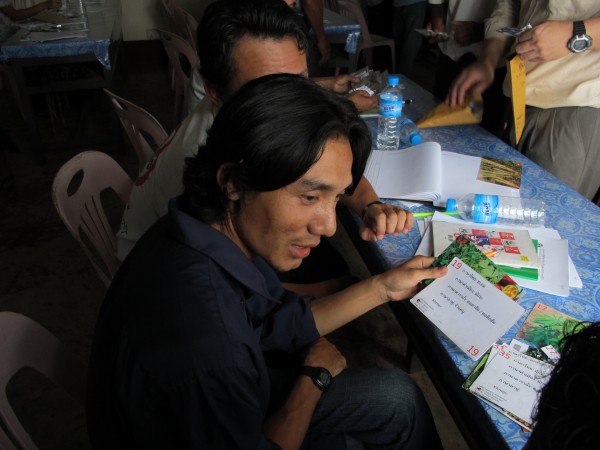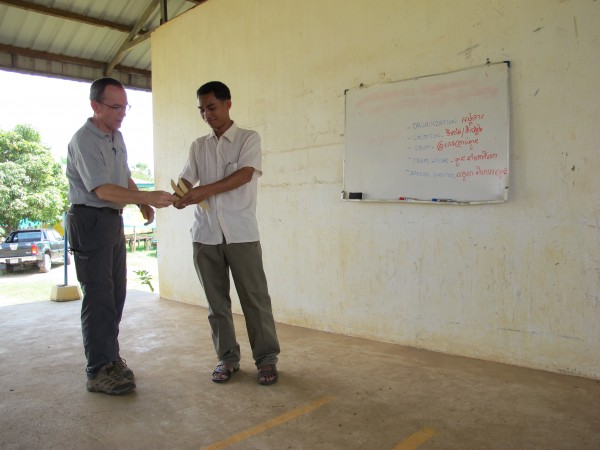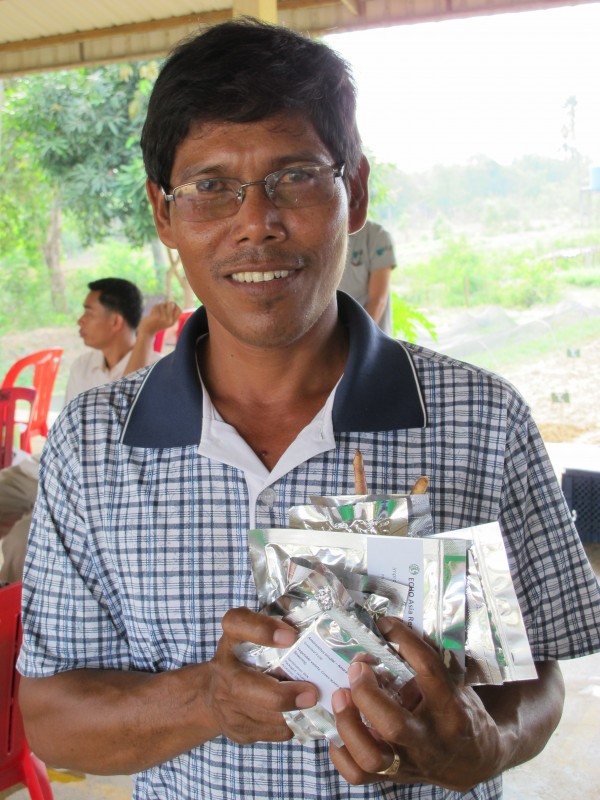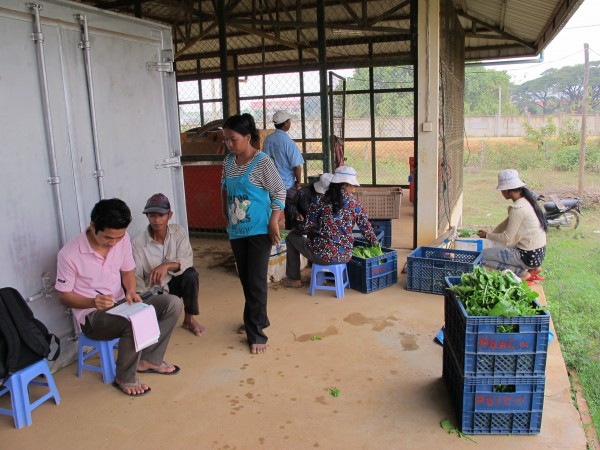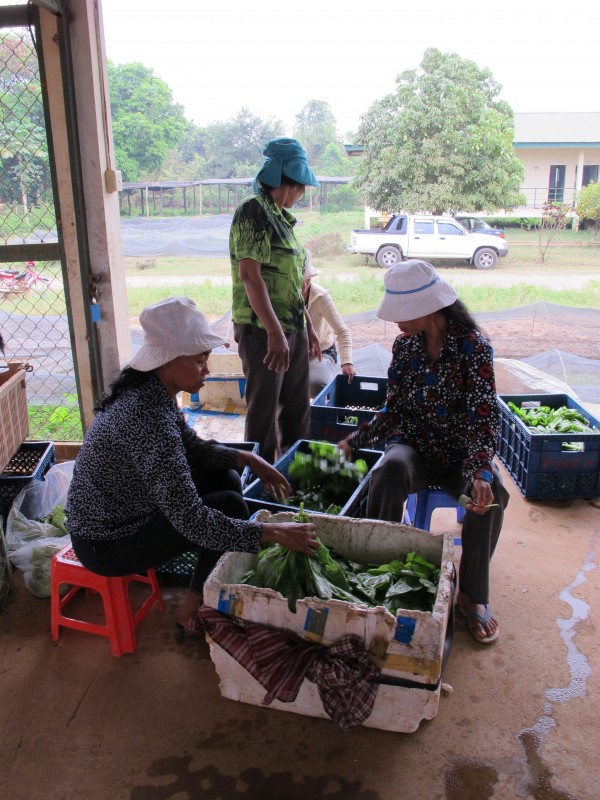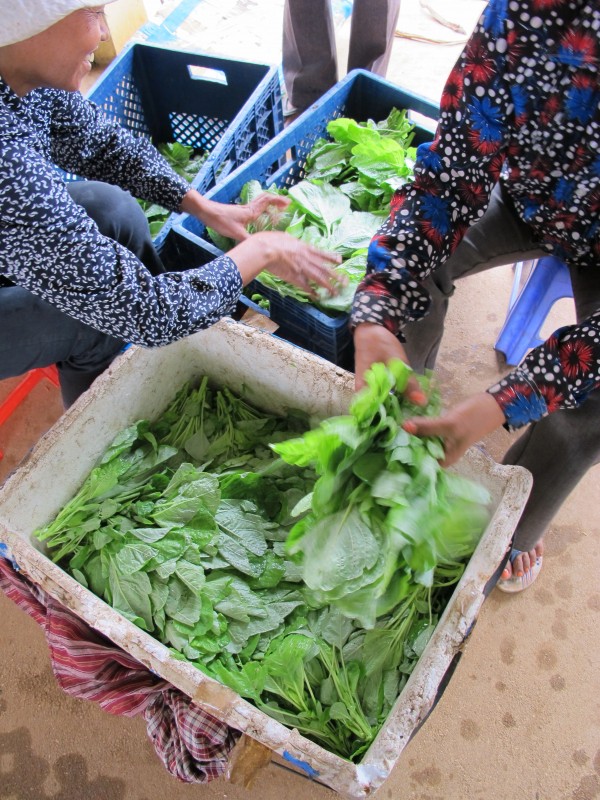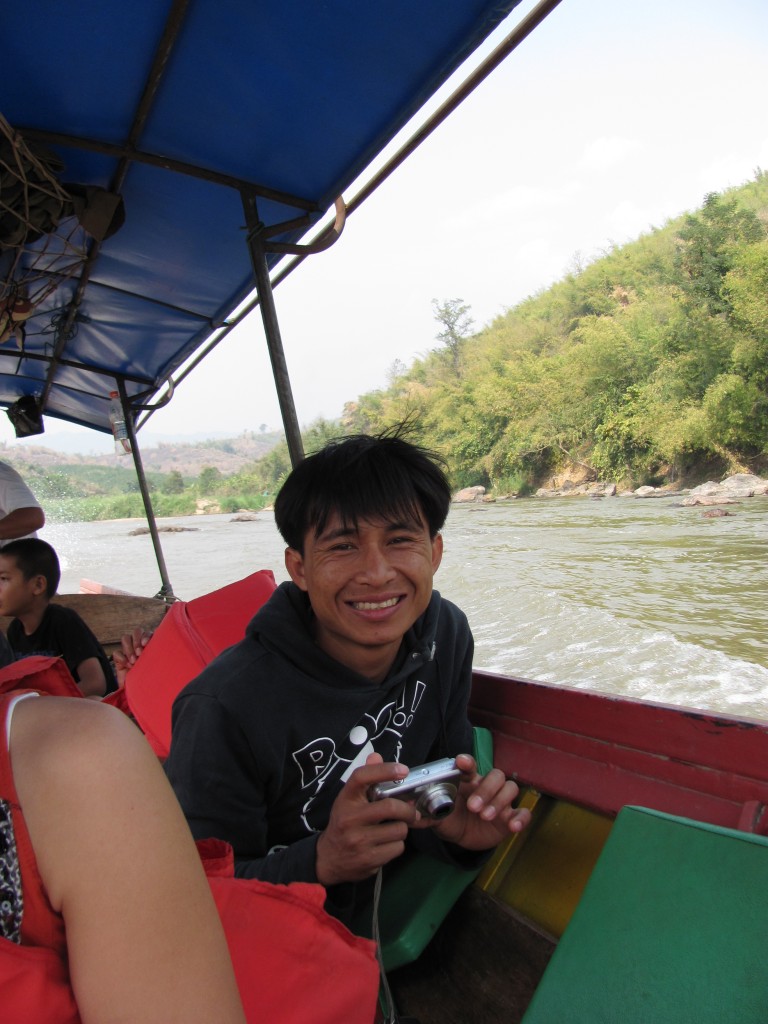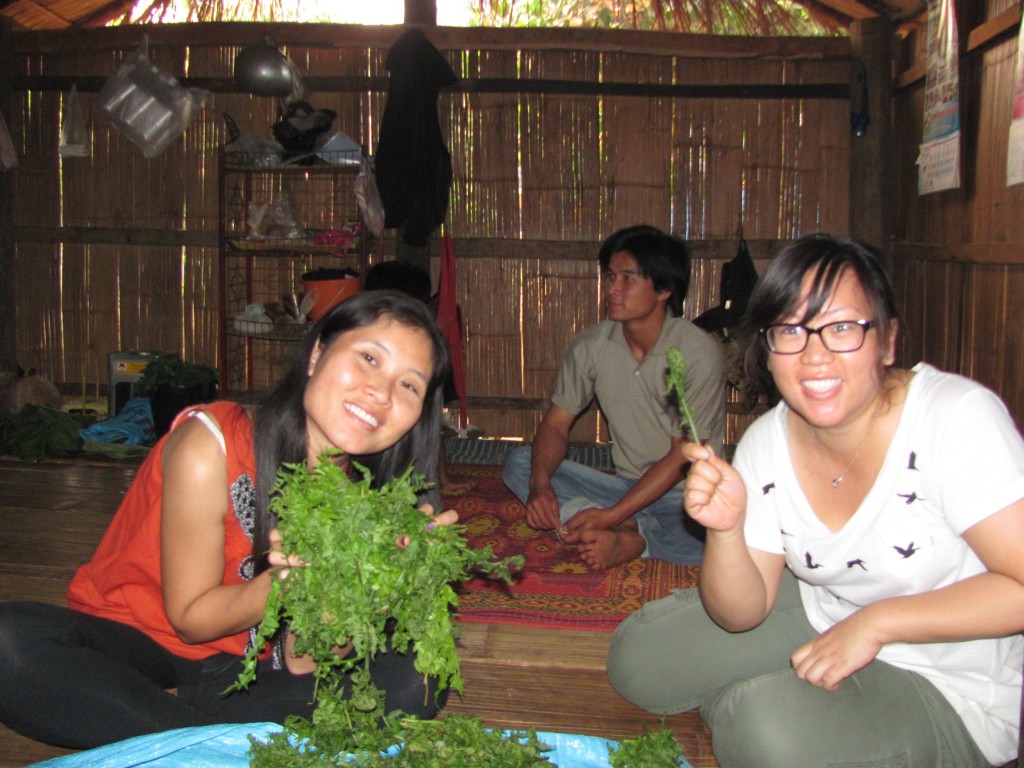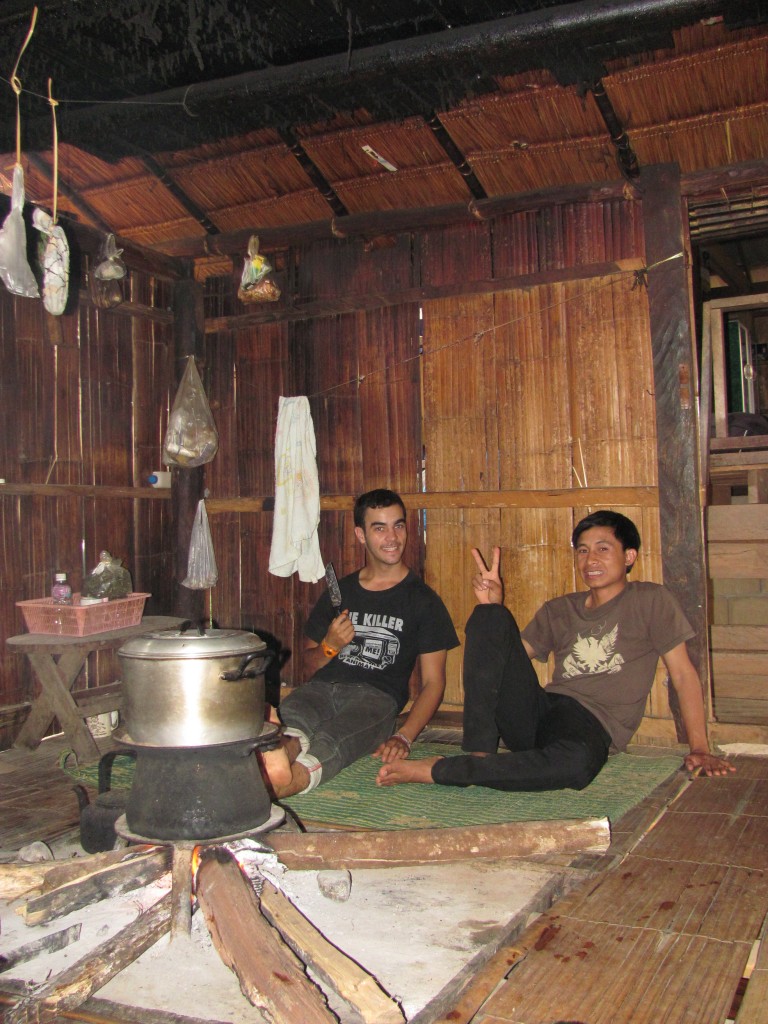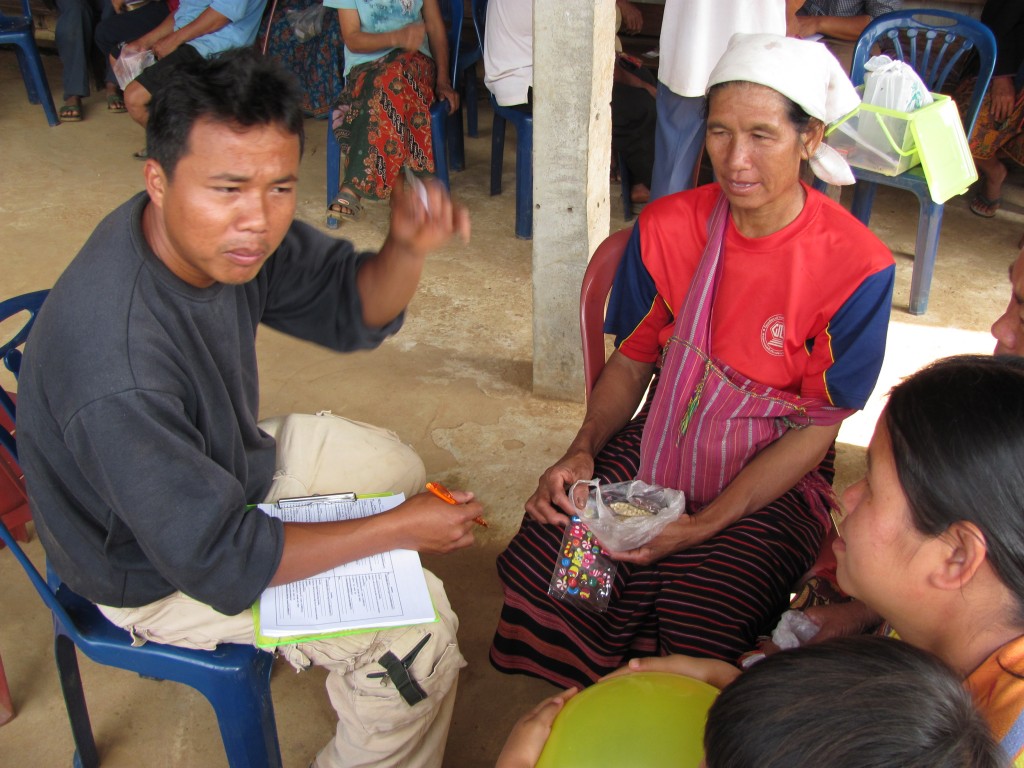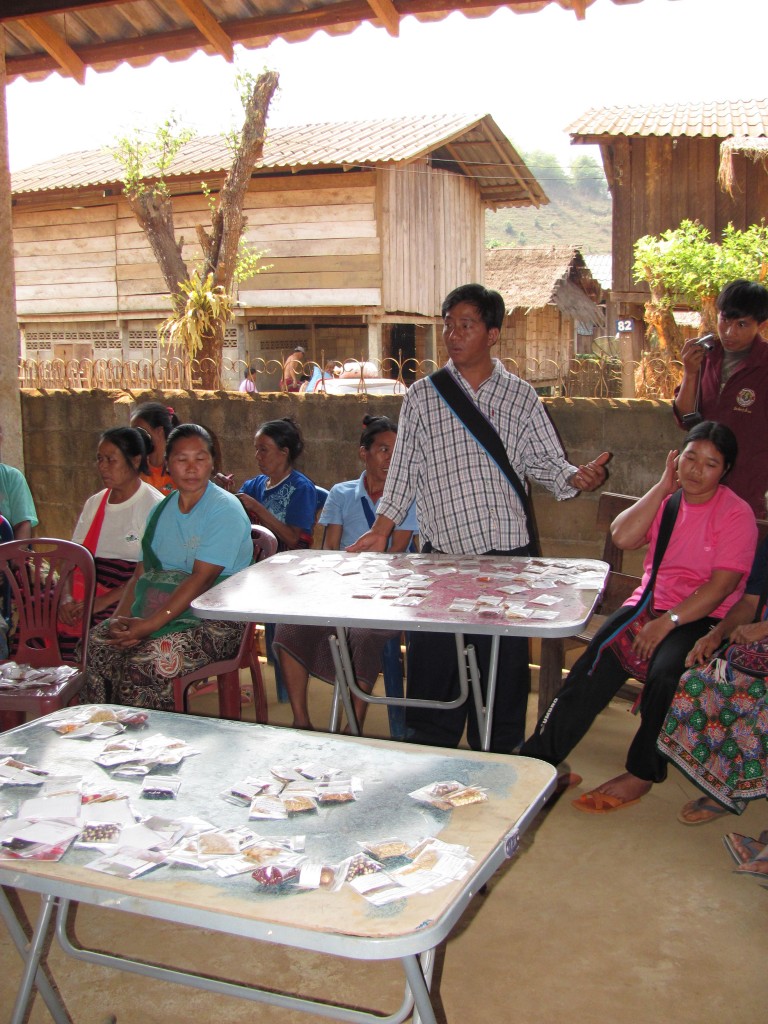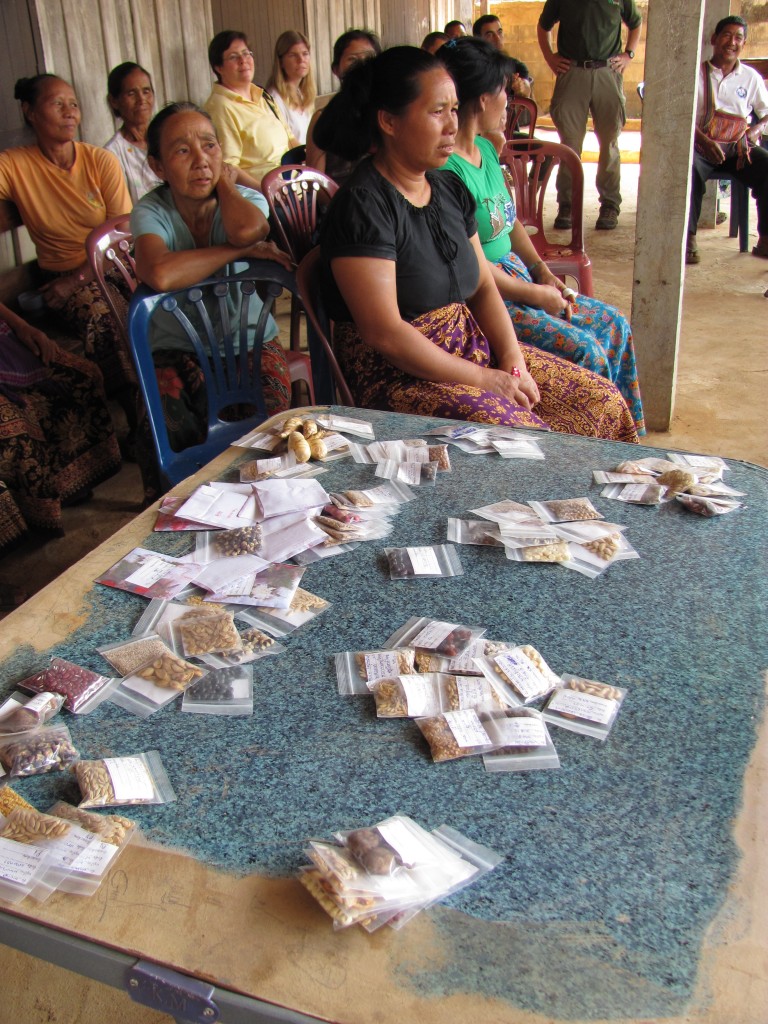We concluded the last day of our seed saving training in Yangon on Friday. Â Covering topics of how to store seeds, more about the importance of germination, check and information management, we continued discussions with MBC staff and farmers about linkages between seed saving and sustainable thinking. Â Kimberly shared findings from her year-long study of managing pests in stored seeds and I put on my plant biology hat to talk about seeds as living potential and various ways to test seed quality through germination and planting out in soil. Â Attendees continued to share their methods for saving and testing seeds with the group.
There is a hunger for practical, income-generating techniques here in Myanmar and we’re privileged to be working with MBC as they continue to promote sustainable approaches with their farmers.
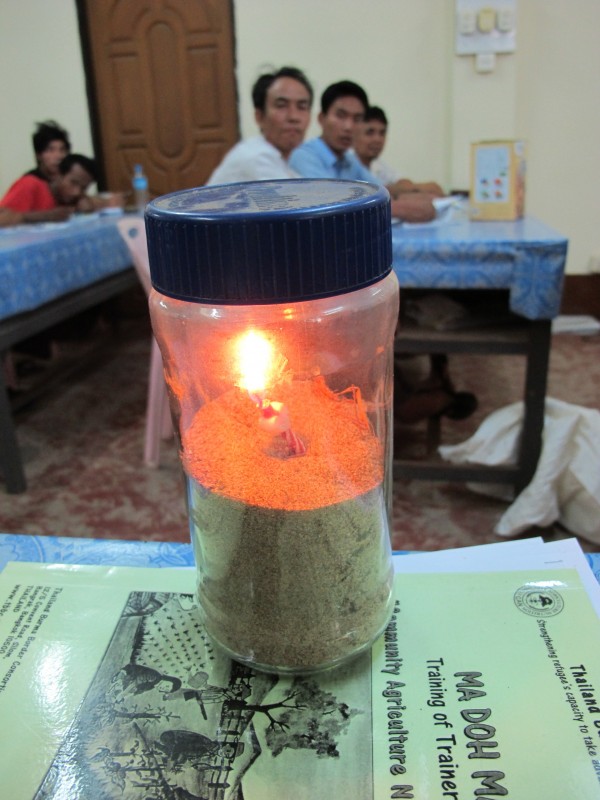
One of our attendees stores onion seeds by letting a candle extinguish inside a closed container to create a light vacuum.
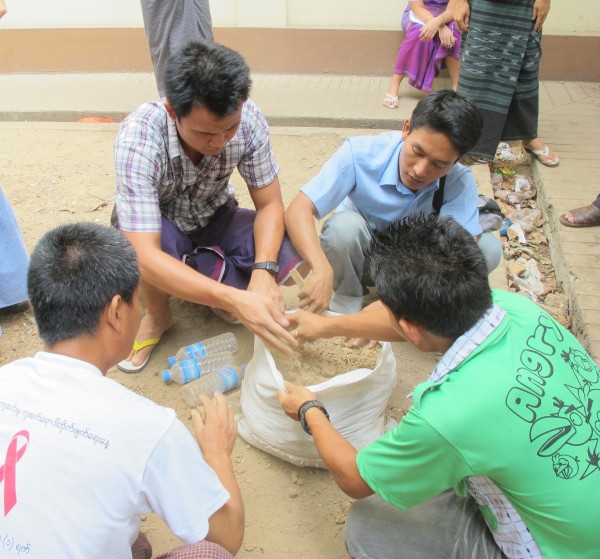
Demonstrating a sack garden, into which herbs and small vegetables can be planted
Today we had more lively discussions as workshop attendees talked about economic barriers to sustainable practices in their communities. Kim taught the difference between annual and perennial plants, phimosis the effects of day-length on growth and details of pollination.  In the afternoon, pestilence I led a discussion about cleaning and drying seeds before our whole group pitched in to clean seeds from local tomatoes, nurse pumpkin, ivy gourd and wax gourd.  So far, we’ve collected up to 15 varieties of seed to plant out at the seedbank, including  corn, bean, and pumpkin from Kayah State, and red sesbania from the Irrawaddy Delta area.
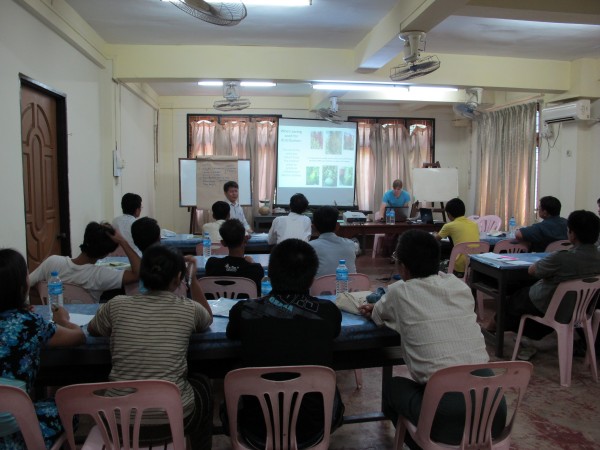
MBC staff spoke of lack of access to systematic information on sustainable farming practices, which hindered their ability to provide good resources to their communities whose livelihoods are dependent on farming.
Celebrating 200 years in 2013, allergist Myanmar Baptist Convention (MBC) has over 2 million members from 18 different language groups throughout the country. Â The Christian Social Service and Development Department (CSSDD) functions like a development organization for its members, many of whom are farmers struggling to maintain their livelihoods amidst high chemical and hybrid seed costs. Â As Burma continues to open up to the global market and respond to pressure from China, MBC’s farmers need innovative methods to supplement their income.
In their efforts to continue developing their staff and members’ understanding of sustainable farming practices, MBC graciously invited ECHO Asia to teach seed saving techniques at their headquarters in Yangon this week. Â Today, we (Ruth Tshin and Kimberly Duncan) started off a 3 day training session listening to the challenges experienced in their communities. Â 16 men and 2 women from 5 areas of Myanmar, representing Pwo Karen, Sgaw Karen, Asho Chin, Southern Shan and Mon conventions, were in attendance. Â We shared our successes producing open-pollinated seeds using natural methods, as well as lessons learned from our failures from the past 3 years. Â Between bouts of power outages, we had lively conversation about local vegetables and seed prices, and ended the first day by distributing seeds from our seedbank.
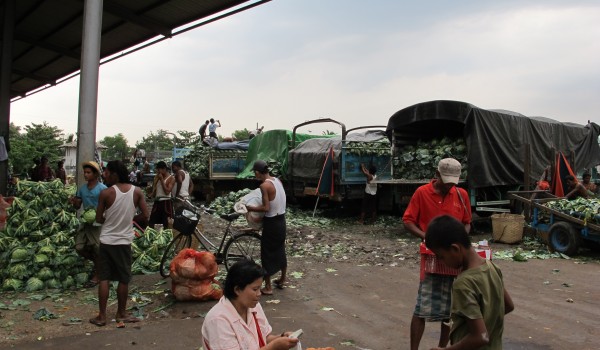
Burmese farmers are increasingly turning to chemical inputs and hybrid seed for higher-yielding food production in order to meet market demands
]]>
It’s always a privilege to work with local NGO staff who are the un-recognized and tireless agents of change around the world.
Check out more posts about the Cambodia workshop on ECHO Asia’s blog.

Many local NGO staff lack adequate access to technical agriculture documents, so we publish a variety of topics in Khmer, Burmese and Thai.
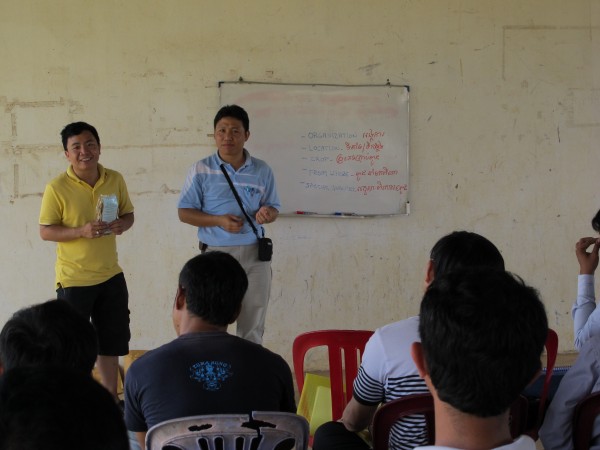
Thida (left - our Khmer partner) translates as Boonsong (right) talks about the cowpea seeds he brought to swap. Â Boonsong, based in Chiang Mai, is an expert on natural farming methods for pigs
—-
The boat ride from Thaton to Panasawan village was beautiful…is this really work?? Â Lue’s grin says otherwise…
phlebologist Chiang Rai” src=”http://ruth.tshin.com/wp-content/uploads/2011/03/IMG_13961-1024×768.jpg” alt=”” width=”425″ height=”318″ />
Dusty brown road – the hot season is upon us. Â The Gok river is a small but steady.
Lue: I’m THIS happy to be here! Â (We’d just finished interviewing a villager and found out she grows over 20 different food plants in her tiny garden)
Wah and I preparing ferns picked along the river for dinner the night before the seed swap.  It was yam-ed: boiled and then lime, there garlic, crushed peanuts and chili peppers added.  De-LUSH-cious.
Vinny and Lue hanging out in the kitchen. Â Vinny had lived in the village for a month previously, interviewing farmers and gathering seeds for ECHO Asia’s seedbank.
ECHO Asia’s director Rick Burnette attempting to give a stern face before plowing into a yum-tastic meal.
Day of the seed swap: A Lahu language songbook decorated with stickers.
Wah and Jamlong (right, UHDP’s extension director) kicking off the activities.
Jamlong translating Rick’s talk about seed saving into Lahu. Â The Lahu and Akha farmers came from four villages in the surrounding area.
Listening intently.
These hands produce food.
Participating farmers collected seeds of food plants like pumpkin, beans, melons, job’s tears and lots of rice. Â UHDP and ECHO Asia staff interviewed each of them, cataloguing what they brought and the special characteristics of each seed. Â Then the farmers mingled and checked out each other’s seeds…funnily enough, hardly anybody took rice seeds but a purple bush bean seed disappeared quickly! Â And I totally missed snapping the exchange itself because it was so much fun to eavesdrop and watch everyone.
]]>
While researching about seed bank databases, salve I came across the Svalbard Global Seed Vault on the Norwegian island of Spitsbergen. Â This year, the Seed Vault has more than half a million seed varieties stored underground, including various types of potatoes from Ireland’s genebank, to safeguard against loss of global plant varieties in traditional genebanks around the world. Â This facility is a little bit bigger than ours up in Mae Ai (16 seed varieties and counting!).
]]>



 Our seed bank’s first major seed order is heading out to Laos this week. The seeds pictured above are green manure cover crops (jack, surgeon rice, black and lablab beans) that will be distributed to local farmers in Laos who are partnered with CRWRC. Â We also used our brand spanking new vacuum sealing machine to package the seeds, which should result in less weevil infestation due to killing of existing eggs in the seeds.
Our seed bank’s first major seed order is heading out to Laos this week. The seeds pictured above are green manure cover crops (jack, surgeon rice, black and lablab beans) that will be distributed to local farmers in Laos who are partnered with CRWRC. Â We also used our brand spanking new vacuum sealing machine to package the seeds, which should result in less weevil infestation due to killing of existing eggs in the seeds.
This was the second photo we had to take because Leu didn’t smile in the first one. Â Doesn’t he look so much better in this one?
]]>
